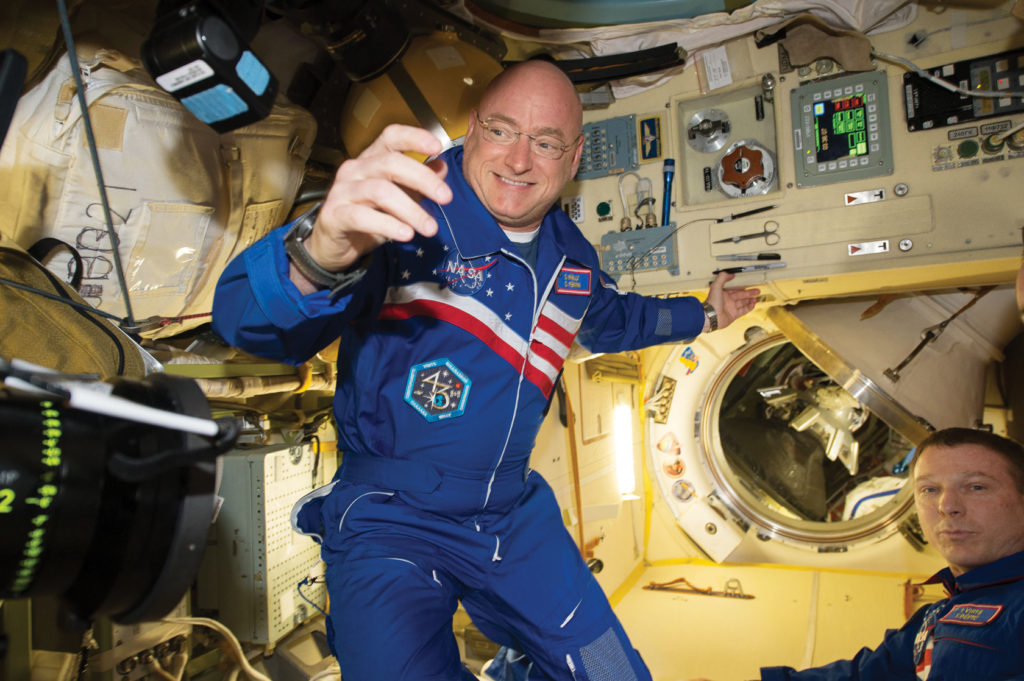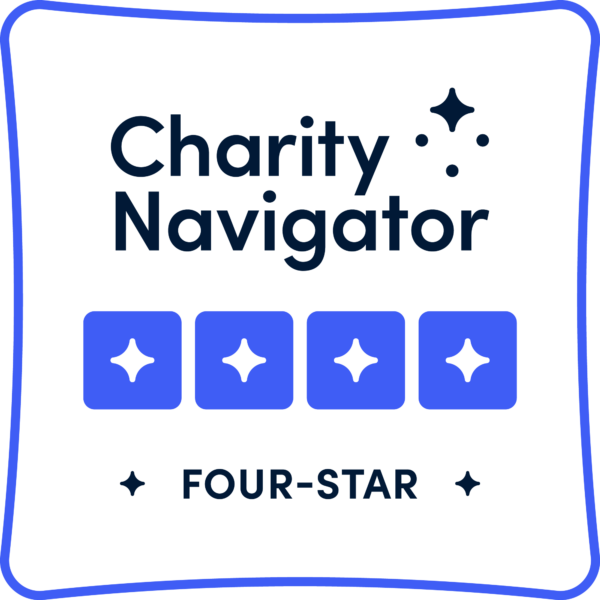Through the Hatch: Scott Kelly arrived at the space station on March 28, 2015, for his yearlong mission. Photo Credit: NASA/Samantha Cristoforetti
Did you know that as your altitude increases, so does your risk for skin cancer? More radiation reaches you up there. Skiers (who go high), pilots (higher) and astronauts (highest) have all experienced the consequences. We talked with extraordinary achievers who have learned to protect themselves — and who explain why they chose to enter a field with so many dangers. In part 1, we start with ski racer champion Erik Schlopy in Park City, Utah. In Part 2, we feature NASA pilot Charles R. Justiz, PhD. And in part 3, we hear from astronaut Scott Kelly, who spent a year on the space station.
Who:
Astronaut Scott Kelly
Activity:
Flying aircraft and spacecraft
Notable achievement:
Commanded the International Space Station and lived there for a year
Adorable fact:
Came home from the space station 2 inches taller than his identical twin brother, Mark Kelly
Type of altitude:
Atmospheric
Place:
Low Earth Orbit
Level of altitude:
250 miles
Imagine being far from your friends and loved ones, in isolation, with extremely limited movement and resources, for a year. Scratch that. We’ve all had a taste of that since the pandemic lockdowns. Try this: Imagine being on the International Space Station (ISS) in 2015, orbiting the Earth for a year, most of that time with just the two Russian cosmonauts you trained with. You’re strapped in and running on the treadmill to keep your bones and muscles working in the near zero-gravity environment. Suddenly, you hear a message from Mission Control in Houston, saying, “We are privatizing the space-to-ground channel. The flight director needs to speak to you.”
Your blood runs cold. The last time you heard that message was in January 2011, on your previous (merely 159-day) stay on the ISS, when you learned that your sister-in-law, Gabby Giffords, married to your identical twin brother, astronaut (now U.S. Senator) Mark Kelly, had been shot. This time, you learn that your home in space is on a possible collision course with an old, out-of-service Russian satellite. This piece of space junk, if it hits, could cause the station to depressurize and kill you and your colleagues instantly. Oh, and it’s scheduled to arrive in about two hours. What do you do?
If you are astronaut Scott Kelly, you turn off the mic and let out the “f” word, then do the job you are well-trained to do. There is not enough time to move the station out of the way, so you pretty much have to batten down the hatches and get into the lifeboat, meaning the Soyuz spacecraft that shuttled you here. There is barely time to do this, but 10 minutes before the potential impact, you’re strapped in place with your colleagues, prepared for flight. It’s dark out, and you won’t be able to see it coming. The clock counts down, you wait, you grimace. You think about that time when you were a Naval aviator and almost flew an F-14 into the water. Then … a few seconds later, you hear from Moscow that the danger has passed. How would you feel?
I talked with astronaut Kelly about this and more.
Julie Bain: So how did you feel during this ordeal?
Scott Kelly: I’ve been in risky situations before. We weren’t that fearful. But fear is a good emotion. It’s probably part of our evolution to be scared, because, in some situations, if you weren’t scared, you’d probably get killed. You wouldn’t run away.
JB: Luckily, this time, you didn’t need to run away. You agreed to spend more time in space than any American ever had, and you completed your mission successfully. Because you have an identical twin who was also an astronaut but didn’t do long-duration flight, you are allowing NASA to compare and study you both for the rest of your lives. Why’d you decide to do it?
SK: People wonder about this: Because flying in space is risky, and you can wind up getting killed, why would you want to do it? Well, a few reasons. Exploration and the science are important and can change the world. It’s also a lot of fun while it’s risky at the same time. I’ve always felt happy to be a part of it.
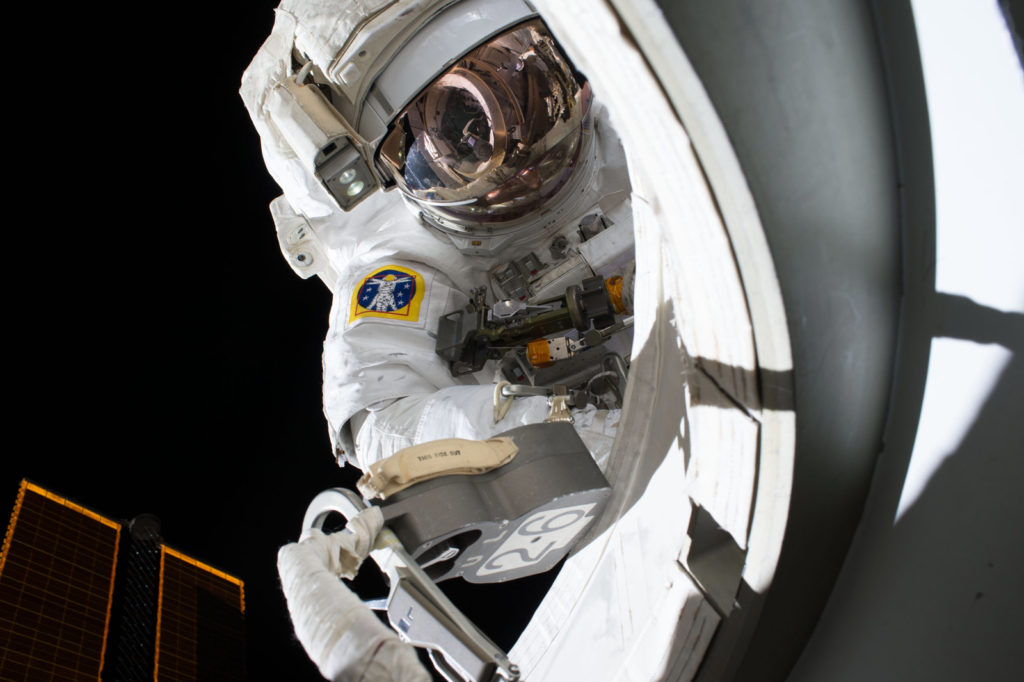
Scott outside the space station on his first-ever spacewalk in October 2015. He worked out there (in the solar and cosmic radiation) for more than seven hours. Credit: NASA/Kjell Lindgren
JB: In your extremely compelling memoir Endurance, you talk about your formative childhood in New Jersey. Were you pretty fearless, an adrenaline seeker? Did you like the scariest carnival rides?
SK: I did. One time, I got run over by one of those go-carts in Seaside Heights, on the boardwalk, complete with big tire tracks. Mark and I also used to go to Seaside Heights and get incredibly sunburned.
JB: From early childhood, you knew that you wanted to do something physically exciting?
SK: Yes, I had this idea that I would have an exciting job. I didn’t know what it was. I felt that at some point in my life, it would all come together. But I was such a bad student, I didn’t feel like I had many options. At the time, I needed to overcome that.
JB: You have said that Tom Wolfe’s book The Right Stuff was a turning point for you. How so?
SK: I recognized traits in those early astronauts that I felt like I had in myself — with one big exception: that I was a bad student. So I thought, Maybe if I could just fix that one thing, I could go on to fly airplanes in the U.S. Navy. Or maybe the U.S. Air Force would be easier. That’s a joke; sometimes it gets a laugh. But it was the first time I thought maybe I could become a test pilot, or maybe even an astronaut someday. It took a while for me to teach myself how to study and pay attention. Eventually, I got the hang of it.
JB: To your own surprise, you did make it as a Naval aviator. During those years, after your childhood sunburns, you were exposed to more solar radiation while flying; how much did you know then about that danger?
SK: Sun exposure was not something anyone ever talked about then. Sometimes I would fly around with my sleeves rolled up on my flight suit. Skin cancer and other kinds of cancers have a higher incidence in military pilots as a result of the radiation exposure — solar, cosmic and also possibly even from the weapons system. I flew the F-14 Tomcat, which had a very powerful radar. But skin cancer was not something I thought about then.
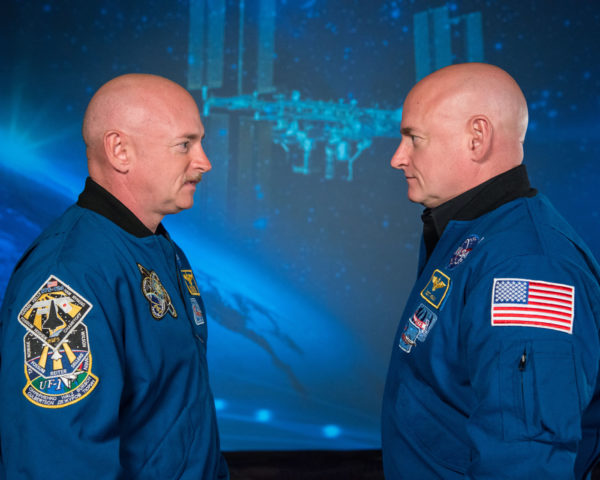
Mark is the twin on the left, with the mustache; Scott is on the right. Credit: NASA/Robert Markowitz
JB: When you and your twin brother, Mark, were chosen to be astronauts, did NASA plan to do genetic research on you two from the get-go?
SK: Actually, no — not until much later. My brother had been at NASA for 15 years. He had flown four times in space, I had flown three times in space, and this idea had never come up. We were never asked about doing any kind of genetic-based experiment on ourselves. In science, you need lots of data points, but you can’t fly 70 twins in space. So it might just seem like anecdotal information to study us. But when my longer yearlong flight came up, the NASA team decided to talk to some university researchers, and there was a fair amount of interest in doing this, to NASA’s surprise.
JB: Being in low Earth orbit on the space station takes the level of radiation exposure up another big notch. Scientists will be observing you both for the rest of your lives to see what they can learn from that. Thank you for your service!
SK: We’ve learned more about the risks. Your radiation exposure data tells you what increased risk of a fatal cancer you’ll have throughout your lifetime. There is still a lot we don’t know, but as I got older, I started taking all this more seriously.
JB: Have you had skin cancer?
SK: I had a basal cell carcinoma on my eyelid. I had surgery and then used a topical chemotherapy cream after that. It made my eye really red and sore, but it worked. That was before my long flight.
JB: What have you learned?
SK: My wife and kids were talking, and one of my kids said, “Dad doesn’t have any phobias.” I thought, “Yeah, that’s true.” Then my wife said, “He has a big one: the sun. Your phobia is the sun.” I thought about it for a minute and said, “That’s true.” Here’s the thing: The sun kills many more people every year than all the other phobias combined. If you add up everyone who has been killed by a snake, falling off a building, a spider, drowning, plus every other phobia, it wouldn’t be even close to the number of people who die of skin cancer. I told my dermatologist that story, and he said, “Oh, that’s brilliant.”
JB: Since retiring from NASA, you have written several books. How is writing compared to being an astronaut?
SK: Oh, my God, it’s brutal! My wife, Amiko, is a good writer, and before I went to the space station, I knew I was going to take some notes, because I might have the opportunity to write a book afterward. Amiko said, when you write a story, you’re not just writing about what you see; it’s about all the senses, because then it makes people feel like they’re there. So, for example, when I talk about floating through the laboratory module, grabbing a handrail, and it’s vibrating, maybe that adds to the experience of the story. On Endurance, I had a coauthor, and my wife helped, too. She would read it and give me ideas. It was a group effort, but for a book that was 140,000 words or so, I probably wrote 180,000 to 200,000 words. It was hard.
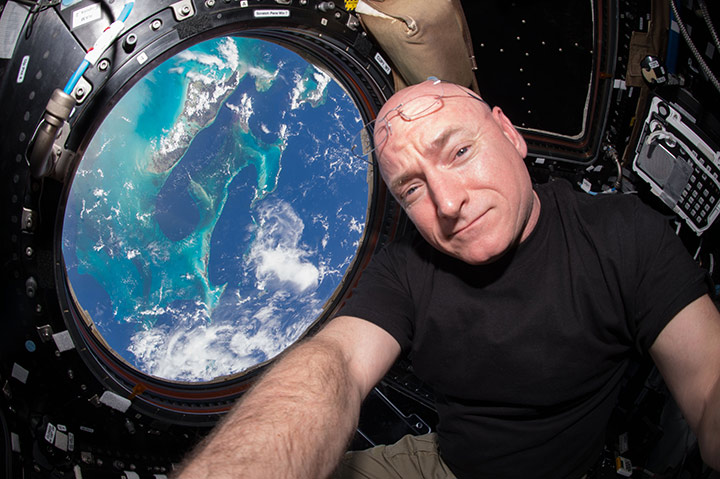
The views never got old during Scott’s 5,440 orbits while on the ISS. He says floating could be fun, too! Credit: NASA
JB: As a writer myself, I can say Amiko gave you very good advice. In part 2 of this article, we talked with NASA pilot Charlie Justiz about training astronauts for zero gravity. How did you adjust and feel about it?
SK: Floating is fun, but it makes just about everything else harder to do. For one thing, all your possessions float, too, and it’s easy to lose things. Also, your blood is floating inside of you. This fluid shift to your head is not pleasant. It gets better over time, but it never completely goes away. So if I had the choice of living in zero gravity versus on earth, gravity wins every time, hands down, no question. But If I could have a zero-G switch in my house, I’d probably turn it on once in a while and just float around.


